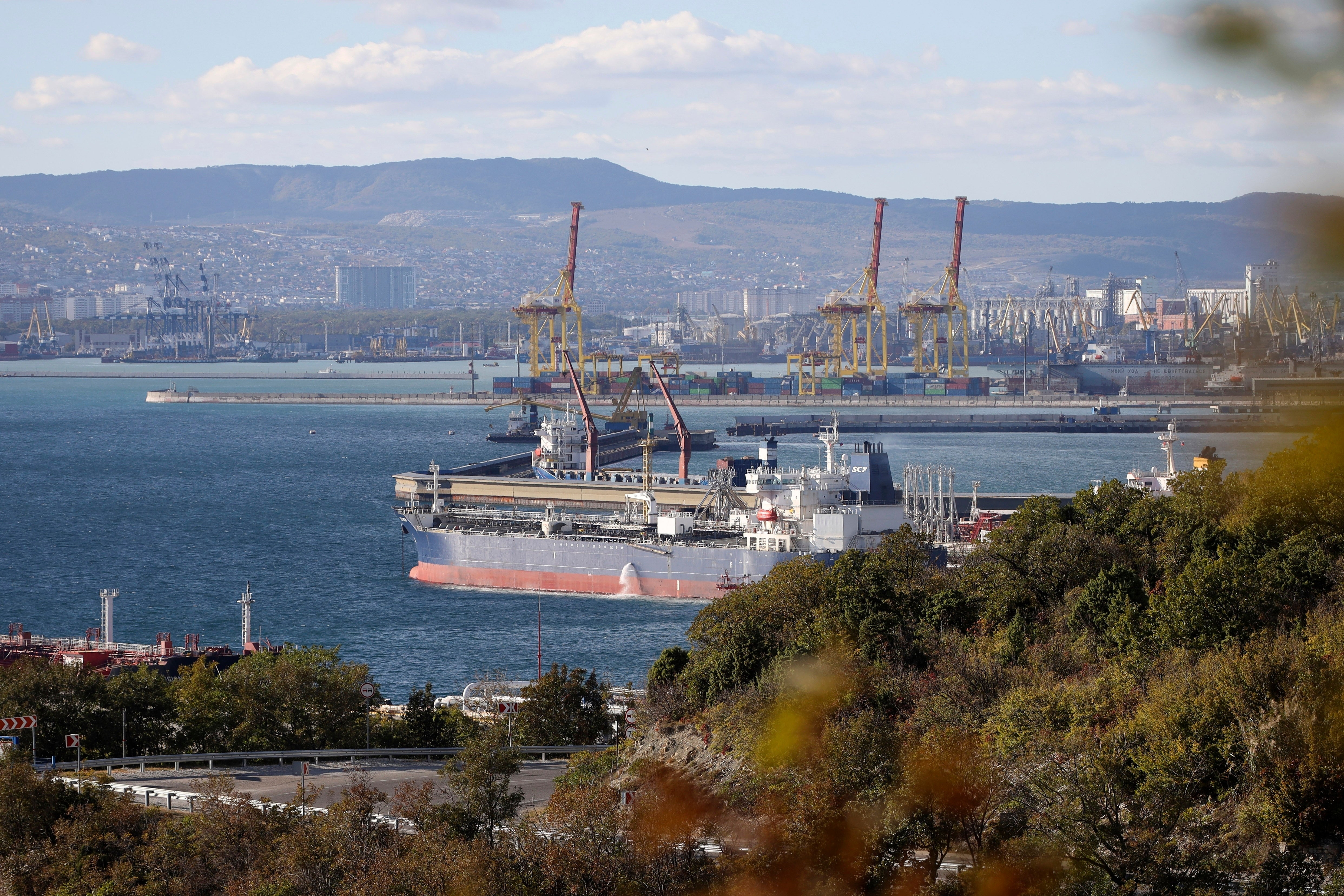Oil prices surge as cap on Russian crude comes into force
Russia is preparing response to price cap that will ‘destabilise world energy markets’, Kremlin says

Your support helps us to tell the story
From reproductive rights to climate change to Big Tech, The Independent is on the ground when the story is developing. Whether it's investigating the financials of Elon Musk's pro-Trump PAC or producing our latest documentary, 'The A Word', which shines a light on the American women fighting for reproductive rights, we know how important it is to parse out the facts from the messaging.
At such a critical moment in US history, we need reporters on the ground. Your donation allows us to keep sending journalists to speak to both sides of the story.
The Independent is trusted by Americans across the entire political spectrum. And unlike many other quality news outlets, we choose not to lock Americans out of our reporting and analysis with paywalls. We believe quality journalism should be available to everyone, paid for by those who can afford it.
Your support makes all the difference.Oil prices surged on Monday as the world’s major oil-producing nations agreed to cut output at the same time as a price cap placed on Russian seaborne crude oil by the G7 and its allies came into force.
The US, Canada, the UK, France, Germany, Italy, and Japan, as well as the rest of the EU and some other Western allies, on Friday agreed to cap the price paid for Russian seaborne crude oil at $60 (£49) a barrel as part of an international campaign in response to Russia’s invasion of Ukraine.
Global benchmark Brent crude surged by up to 1.95 per cent at one point on Monday to hit $87.24 a barrel and US West Texas Intermediate gained 1.8 per cent to $81.38 a barrel, though both have since come down slightly.
Russia said it was preparing its response to the Western allies’ move, describing it as a “step towards destabilising world energy markets”.
Kremlin spokesperson Dmitry Peskov insisted the price cap would not hurt Moscow’s ambitions in Ukraine. “Russia and the Russian economy have the required capacity to fully meet the needs and requirements of the special military operation,” he said.
But he confirmed the cost of Russian oil “will change” after the move, when asked if Europeans and the world should prepare for higher prices.
The change in oil prices was also attributed to the decision by the Saudi-led Opec+ grouping of producing countries, which includes Russia, to stick to its policy of reducing output.
The 23-country Opec+ agreed to stick to their October plan to reduce output by 2 million barrels per day (bpd) from November through 2023.
“The decision ... is not a surprise, given the uncertainty in the market over the impact of the 5 December EU Russia crude oil import ban and the G7 price cap,” said Ann-Louise Hittle, vice president of consultancy Wood Mackenzie.
The price cap will mean Russian oil can only be shipped to third-party countries using G7 and EU tankers, insurance companies and credit institutions if the cargo has been bought at or below the $60 per barrel cap.
The $60 figure is a compromise after two groupings within a divided EU tussled to place the price cap at two different thresholds. While some European maritime nations demanded a price cap at or above $70 a barrel, other countries called for the cap be set at or around $30 a barrel.
Eventually, negotiators set it at a price point that is close to what major buyers of Russian oil, such as India and China, are currently paying.
Ukrainian president Volodymyr Zelensky was unsatisfied with the deal and said $60 was too high to stop Russia from waging war in Ukraine.
“The logic is obvious: If the price limit for Russian oil is $60 instead of, for example, $30, which Poland and the Baltic countries talked about, then the Russian budget will receive about $100 billion a year,” Mr Zelensky said.
“This money will go not only to the war and not only to Russia’s further sponsoring of other terrorist regimes and organisations,” he continued.
“This money will also be used to further destabilise precisely those countries that are now trying to avoid big decisions.”
The price cap coincides with the EU banning seaborne imports of Russian crude from Monday.
Russian officials have said that Moscow will not sell oil to countries that abide by the cap.
Former Russian president Dmitry Medvedev, now deputy chairman of Putin’s Security Council, wrote on Telegram that the squeeze on Russian oil would lead to an “unimaginable” jump in world prices.
Join our commenting forum
Join thought-provoking conversations, follow other Independent readers and see their replies
Comments